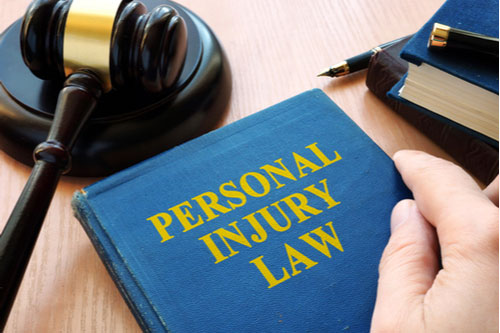For all types of personal injury lawsuits, such as slip and fall accidents, car accidents, or dog bites, many people wonder “how much is my case worth?” Damage refers to how your injury has impacted you financially, physically, and emotionally. When an individual is injured (the plaintiff), the person or company that is legally responsible for the accident pays monetary damages to them (the defendant or their insurance company).
After negotiating a settlement, for example between the parties, their insurers, and their lawyers, damages can be agreed upon. The plaintiff can be ordered to pay damages if the lawsuit goes to trial. Our Columbia personal injury attorneys will examine the different types of damages in personal injury cases, along with how the plaintiff’s actions (or inactions) may affect the damages.
How Much Is My Personal Injury Case Worth?
You have probably suffered injuries in a slip or fall, car accident, or any other type of accident, which have likely cost you financially, physically, and mentally. When you hire a personal injury attorney, you often wonder “how much will my case be worth?”
As plain as it may seem, the answer involves relatively complex equations. Most insurance companies at the time of determining your case’s value, add up factors such as the magnitude of your injuries, the anticipated medical expenses likely to be incurred, and what they have already negotiated for claims of an identical nature.
You are not the only one who does not know what to do after an accident. Every case is different, but certain aspects and laws could affect the monetary amount of your claim. The Columbia personal injury attorneys at our law firm know how insurance companies work, and we can help you maximize the value of your claim.
Your Personal Injury Claim Is Valued as Follows:
In general, the type of damages involved in a personal injury claim determines its value. In such cases, the party legally responsible for causing the accident or injury will compensate the plaintiff for the loss they suffered as a result.
The amount of financial compensation a plaintiff may receive in a lawsuit may be determined by a settlement or by a jury when deciding the final amount. Damages are typically based on the effect of the accident on the victim’s daily life.
Economic Damages vs. Non-Economic Damages:
Most bodily injury cases involve two types of damages, economic and non-economic, that form the basis of the plaintiff’s claim: economic damages, or “special” damages, and non-economic damages, or “general” damages.
The term economic damage, or special damage, refers to a range of present as well as future financial losses. These losses are usually calculated using numbers that are recorded along the way. Therefore, it may be easier to establish a monetary value for these types of losses when settling a claim.
There are several economic costs to consider:
- Health-related expenses associated with the accident
- Injury-related damages to property
- Inability to earn income resulting from the accident
- Losses incurred through other means
General damages, or non-economic damages, represent the mental and physical suffering the injured victim suffers as a result of the accident or injury. General damages may include physical discomfort and physical pain as well as pain and suffering.
Non-economic damages include:
- Emotional distress
- Loss of enjoyment of life
- Loss of consortium
How Types of Damages Affect Your Personal Injury Claim Value:
The following common compensatory damages often play a significant role in calculating the amount of a personal injury claim:
Medical Expenses:
Even if you did not pay out of pocket at the time of processing, this represents the total amount of bills for medical treatment that you received. Medical expenses may include therapy and nursing care.
Property Damage or Loss:
Vehicles often sustain damage in traffic accidents, and it is necessary to take into account the value of property lost or damaged in the accident. Property damage to vehicles is a common occurrence in traffic accidents. These damages may also occur as a result of slips and falls or other accidents involving personal items such as clothing or personal effects.
Loss of Earnings:
When a person suffers a personal injury, such as a car accident, the insurance company is obligated to cover lost income. This reimbursement should include the financial loss borne by the injured party in case their future earning capacity has also been impaired due to the accident.
Admissible Expenses:
In addition to your medical care and rehabilitation expenses, you may be eligible to receive compensation for other uninsured expenses incurred as a result of the accident. These expenses include co-pays for medications and treatment, transportation expenses if you are unable to drive, and alternative services such as hiring a maid.
Pain and Suffering:
It is not uncommon to refer to compensation for the pain and suffering of accident victims as a financial award for the discomfort and pain they experienced during and after the accident. A jury must be shown that you experienced pain and suffering, which is one of the most subjective concepts in the law.
There is nothing more important than hiring Columbia personal injury attorneys who can explain this to an adjuster, defense attorney, or jury. An injury can result in lingering pain, which can also contribute to your suffering and overall pain. In general, the more severe, lasting, and painful the injury, the greater the level of pain and suffering you will experience.
Call Our Columbia Personal Injury Attorneys:
You will also see a difference in how much money you receive for your personal injury claim if you hire a Columbia personal injury attorney. We will be able to review your case, give you a preliminary assessment of how much your case might be worth, and help you assess your future course of action.


